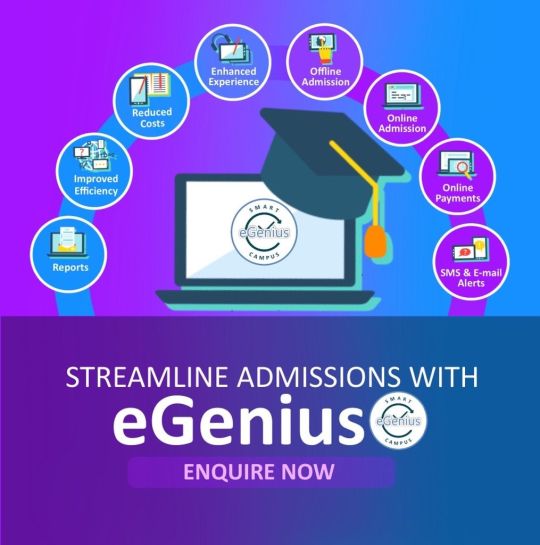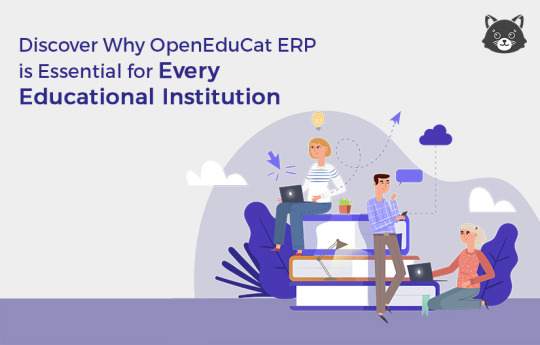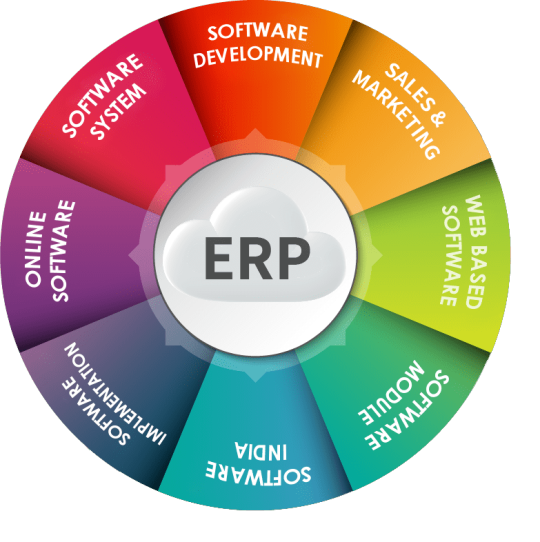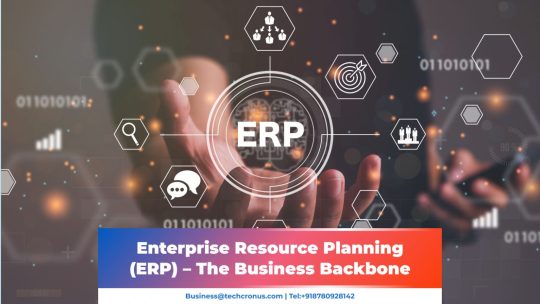#erp software for Educational institutes
Explore tagged Tumblr posts
Text
Student Portal UAE | ERP software for educational institutes
Streamline education management with Student Portal UAE by Academia ERP. Simplify operations, enhance learning, and manage institutes efficiently. Visit: academiaerp.com/me
0 notes
Text
Education ERP Solutions by Centralized - Transforming Educational Institutions
Centralized specializes in transforming educational institutions with advanced Education ERP solutions. Our comprehensive ERP systems are crafted to streamline administrative operations, enhance communication channels, and improve overall efficiency across campuses. Whether you manage a school, college, or university, our tailored solutions are designed to meet your specific needs and challenges in the education sector.
Key features of our Education ERP solutions include:
Administrative Automation: Simplify and automate routine administrative tasks such as admissions, student attendance, fee management, and more.
Student Management: Efficiently manage student information, academic records, grades, and progress tracking in a centralized system.
Teacher and Staff Management: Streamline HR processes, payroll management, performance evaluation, and professional development for faculty and staff.
Parent Engagement: Enhance parent-teacher communication with portals for updates on student performance, attendance, and school activities.
Financial Management: Ensure transparency and accuracy in financial operations with modules for budgeting, accounting, and expenditure tracking.
Analytics and Reporting: Access insightful analytics and generate reports to facilitate data-driven decision-making and institutional planning.
Centralized ERP solutions are scalable, secure, and customizable to adapt to the evolving needs of educational institutions. Our team of experienced consultants ensures seamless integration and provides ongoing support to maximize the benefits of ERP implementation.
Transform your educational institution with Centralized Education ERP solutions. Contact us today to schedule a consultation and discover how we can optimize your operations, enhance collaboration, and drive academic excellence.
0 notes
Text
Revolutionizing Education Management: The Role of ERP Software in Educational Institutes
In today's digital age, Educational Institutes are no exception to the transformative power of technology. Just as businesses have embraced Enterprise Resource Planning (ERP) software to streamline operations, educational institutions are increasingly turning to ERP solutions to enhance efficiency, collaboration, and student outcomes. ERP software offers a comprehensive platform to manage various aspects of educational institutes, including student information, academic programs, finances, human resources, and more. In this blog post, we'll delve into the significance of ERP software in educational institutes and how it is revolutionizing the management of these institutions.
Understanding ERP Software for Educational Institutes
ERP software for educational institutes is a centralized system that integrates various functions and departments within an educational institution. It provides a unified platform for managing student data, academic programs, administrative tasks, and financial operations. Unlike traditional systems that rely on separate software applications for different functions, ERP software offers a holistic approach to managing all aspects of an educational institute.
Key Features and Benefits
Centralized Student Information Management: One of the primary features of ERP software for educational institutes is the centralized management of student information. From admissions and enrollment to attendance tracking and academic progress, ERP systems store and organize comprehensive student records in a single database. This streamlines administrative tasks and provides educators with quick access to relevant student data, facilitating informed decision-making and personalized support for students.
Efficient Academic Program Management: Educational institutes offer diverse academic programs, courses, and curricula, each with its own set of requirements and resources. ERP software enables administrators to efficiently manage academic programs by automating course scheduling, resource allocation, and faculty assignments. This ensures optimal utilization of resources and minimizes scheduling conflicts, ultimately enhancing the academic experience for students and faculty members alike.
Financial Management and Reporting: Managing finances in educational institutes can be complex, with multiple revenue streams, expenditures, and budget allocations to track. ERP software simplifies financial management by integrating accounting processes, budgeting, procurement, and payroll functions into a unified system. It enables administrators to generate accurate financial reports, monitor budgets in real-time, and ensure compliance with regulatory requirements, thereby improving financial transparency and accountability.
Human Resources and Staff Management: Effective staff management is essential for the smooth functioning of educational institutes. ERP software facilitates the management of human resources by automating processes such as recruitment, employee onboarding, performance evaluation, and leave management. By centralizing HR functions, educational institutions can streamline administrative workflows, enhance communication between staff members, and foster a collaborative work environment.
Data Analytics and Decision Support: ERP software for educational institutes is equipped with robust analytics capabilities that enable administrators to derive actionable insights from vast amounts of data. By analyzing student performance trends, enrollment patterns, and resource utilization metrics, educational institutions can make data-driven decisions to improve academic outcomes, optimize operations, and enhance the overall student experience.

Implementation Challenges and Best Practices
While ERP software offers numerous benefits for educational institutes, implementing and integrating such systems can pose challenges. Common implementation challenges include resistance to change, data migration issues, staff training requirements, and customization complexities. However, with careful planning, stakeholder engagement, and effective change management strategies, these challenges can be overcome.
Best practices for successful ERP implementation in educational institutes include:
Stakeholder Engagement: Involve key stakeholders, including administrators, faculty members, staff, and IT personnel, in the implementation process from the outset. Solicit their input, address concerns, and ensure buy-in to maximize adoption and success.
Comprehensive Training Programs: Provide comprehensive training programs to ensure that all users are proficient in using the ERP system. Offer training sessions, workshops, and online resources tailored to the specific needs of different user groups.
Data Migration and Integration: Prioritize data migration and integration to ensure seamless transition from legacy systems to the new ERP platform. Cleanse and standardize data, establish data mapping protocols, and conduct thorough testing to validate data accuracy and integrity.
Customization and Configuration: Customize the ERP system to align with the unique requirements and workflows of the educational institute. Work closely with vendors and consultants to configure the system according to specific needs while minimizing unnecessary customizations.
Continuous Improvement and Support: Implement a culture of continuous improvement and support to optimize the use of the ERP system over time. Regularly solicit feedback from users, monitor system performance, and provide ongoing training and technical assistance as needed.
Future Trends and Innovations
As technology continues to evolve, ERP software for educational institutes is poised to undergo further advancements and innovations. Some emerging trends and future directions in this space include:
Cloud-Based Solutions: The adoption of cloud-based ERP solutions is on the rise, offering scalability, flexibility, and cost-effectiveness for educational institutes. Cloud-based ERP systems enable anytime, anywhere access to data and applications, facilitating remote learning and administrative operations.
Mobile Applications: Mobile applications are becoming increasingly prevalent in ERP software for educational institutes, allowing students, faculty, and staff to access essential functions and information on smartphones and tablets. Mobile apps enhance convenience, accessibility, and engagement, empowering users to stay connected and productive on the go.
Integration with Learning Management Systems (LMS): Integration between ERP systems and Learning Management Systems (LMS) is becoming more seamless, enabling educational institutes to streamline academic workflows, such as course management, grading, and content delivery. Integrated ERP-LMS solutions provide a unified platform for managing both administrative and academic functions, enhancing efficiency and collaboration.
Data Analytics and Predictive Insights: The use of advanced analytics and predictive modeling techniques is gaining traction in ERP software for educational institutes. By harnessing the power of data analytics, educational institutions can gain deeper insights into student behavior, performance trends, and outcomes, enabling proactive interventions and personalized support strategies.
Artificial Intelligence (AI) and Automation: AI-powered features, such as chatbots, virtual assistants, and predictive analytics, are being integrated into ERP systems to automate routine tasks, improve decision-making, and enhance user experiences. AI-driven automation can streamline administrative processes, reduce manual effort, and optimize resource allocation in educational institutes.
In conclusion, ERP software plays a pivotal role in revolutionizing the management of educational institutes by providing a centralized platform for integrating and optimizing various functions and processes. From student information management and academic program administration to financial management and analytics, ERP systems offer a comprehensive solution to meet the diverse needs of educational institutions. By embracing ERP software and leveraging emerging trends and innovations, educational institutes can enhance efficiency, collaboration, and student outcomes in the digital age. Learn more
#erp software for Educational institutes#erp solutions for educational institutions#account management system#erp software for Education#erp for Educational institutions
0 notes
Text
EazyScholar offers a comprehensive ERP solution tailored for educational institutes, streamlining administrative tasks and enhancing efficiency. Manage student records, attendance, scheduling, and academic progress seamlessly. With integrated modules for finance, HR, and communication, EazyScholar empowers institutions to focus on delivering quality education while optimizing operational processes. Experience the ease of managing your educational institute with EazyScholar.For more information visit us: https://eazyscholar.com

0 notes
Text

🚀💻 With eGenius CAAS, streamlining the admission process has never been easier! Say goodbye to paperwork and hello to efficiency.
https://egenius.in/?utm_source=organic&utm_medium=LinkedIn&utm_campaign=Admission%20Software&utm_id=egenius
5 notes
·
View notes
Text
DATA DRIVEN POLICY MAKING IN EDUCATIONAL SYSTEM
#education#higher education#student#education systems and institutions#education software#erp software#school erp software#school erp system
4 notes
·
View notes
Text
Transforming Education: A Case Study on Implementing an Institute Management System in Schools
PiERP, a cloud-based Institute Management System, revolutionizes school and university administration with its advanced features. It streamlines workflows across departments, minimizing errors and enhancing student experiences. By integrating AI & ML, PiERP promotes a paperless environment, ensuring swift and accurate operations. Developed by Citta, PiERP simplifies tasks with its centralized database management. It also addresses security concerns like malware, unsafe data sharing, and negligence by protecting sensitive information and preventing unauthorized access. The Profile Management Module further reduces staff workload during student admissions and helps educators efficiently monitor students and staff. For more details, visit: https://pierp.software/school-management-system
#erp for education#erp for educational institutions#education erp software#best erp for educational institutions#erp systems for education
0 notes
Text
Benefits of Online Assessment Over Offline Assessment
In the rapidly evolving landscape of education, assessments play a critical role in measuring student performance, understanding learning outcomes, and guiding instructional strategies. Online assessments are becoming increasingly popular due to their numerous advantages over traditional offline assessments. This article explores the benefits of online assessments and how they are transforming the educational assessment process.
Understanding Online and Offline Assessments
Offline assessments refer to traditional methods of testing, such as paper-based exams and quizzes conducted in a physical classroom. Online assessments, on the other hand, utilize digital platforms and tools to administer tests and quizzes, allowing students to complete them over the internet. The shift from offline to online assessments brings several significant benefits that enhance the assessment experience for both students and educators.
1. Convenience and Accessibility
One of the most significant advantages of online assessments is their convenience and accessibility. Students can take exams from any location with an internet connection, eliminating the need to travel to a physical location. This flexibility is particularly beneficial for students in remote areas, those with mobility issues, or during times of crisis such as pandemics.
Key Points
Flexible Scheduling: Students can complete assessments at their convenience within a given time frame.
Remote Access: Provides access to assessments for students who cannot attend in-person exams.
Reduced Travel: Eliminates the need for travel to exam centers, saving time and resources.
2. Efficient Administration and Management
Online assessments streamline the administration and management process, reducing the time and effort required for organizing and conducting exams. Automated systems handle tasks such as test creation, distribution, and grading, allowing educators to focus more on teaching and less on administrative duties.
Key Points
Automated Grading: Immediate grading and feedback reduce the workload for educators and provide instant results to students.
Easy Distribution: Tests can be distributed to all students simultaneously via digital platforms.
Efficient Data Management: Centralized storage of assessment data simplifies tracking and reporting.
3. Enhanced Security and Integrity
Online assessments offer enhanced security and integrity features to prevent cheating and ensure the authenticity of test results. Modern assessment platforms incorporate various security measures to maintain the integrity of the examination process.
Key Points
Proctoring Tools: Online proctoring solutions, including video monitoring and AI-based surveillance, help prevent cheating.
Randomization: Randomized questions and answer choices minimize the likelihood of cheating.
Secure Platforms: Encrypted systems protect sensitive student information and test data.
4. Instant Feedback and Results
With online assessments, students receive instant feedback and results, allowing them to understand their performance immediately. This timely feedback helps students identify areas for improvement and adjust their learning strategies accordingly.
Key Points
Real-Time Feedback: Instantaneous feedback on answers helps students learn from their mistakes.
Performance Analytics: Detailed performance reports provide insights into strengths and weaknesses.
Continuous Improvement: Immediate results enable students to make quick adjustments to their study habits.
5. Diverse Question Formats and Interactive Features
Online assessments support a wide range of question formats and interactive features that enhance the testing experience. Educators can incorporate multimedia elements, such as videos and interactive simulations, to create more engaging and comprehensive assessments.
Key Points
Variety of Question Types: Supports multiple-choice, short answer, essay, and interactive questions.
Multimedia Integration: Incorporates images, videos, and simulations to enrich the assessment content.
Interactive Elements: Includes drag-and-drop, matching, and other interactive features to assess different skills.
6. Cost and Resource Efficiency
Online assessments can be more cost-effective and resource-efficient compared to offline assessments. By reducing the need for paper, printing, and physical space, institutions can lower operational costs and minimize environmental impact.
Key Points
Reduced Paper Use: Minimizes the need for printing and distributing physical exam papers.
Lower Operational Costs: Decreases costs associated with exam administration, such as facility rental and invigilation.
Environmental Benefits: Supports sustainability by reducing waste and resource consumption.
7. Data-Driven Insights and Reporting
Online assessment platforms provide valuable data-driven insights and reporting that help educators make informed decisions about student performance and instructional strategies. Advanced analytics tools can track progress, identify trends, and generate comprehensive reports.
Key Points
Detailed Analytics: Offers in-depth analysis of student performance and assessment outcomes.
Trend Identification: Identifies patterns and trends in student learning and assessment results.
Customizable Reports: Generates customized reports for individual students, classes, or courses.
8. Adaptability and Scalability
Online assessments offer adaptability and scalability, allowing institutions to easily adjust assessments based on changing needs and requirements. The flexibility of online platforms makes it possible to scale assessments for large groups or various academic levels without additional logistical challenges.
Key Points
Scalable Solutions: Accommodates a large number of students without requiring additional resources.
Flexible Adaptation: Allows for quick changes to assessment content and format.
Support for Different Levels: Tailors assessments for various academic levels and subjects.
Conclusion
In conclusion, online assessments offer numerous advantages over traditional offline assessments, including greater convenience, efficiency, security, and flexibility. By embracing online assessment solutions, educational institutions can enhance the assessment process, providing a more streamlined and effective experience for students and educators alike. The benefits of instant feedback, diverse question formats, and cost efficiency make online assessments a valuable tool in modern education. As technology continues to advance, the adoption of online assessments will play a pivotal role in shaping the future of educational evaluation and ensuring a high-quality learning experience for all students.
🙋Contact us for more details: 📞Call us: +91-9560603239 📧Email us: [email protected] 🌐Website: https://erphubspot.com/online-assigment-help
#erp software#erp solution#educational erp#ERP Hubspot#cloud erp#school#college#institute#university
0 notes
Text
0 notes
Text
Are you tired of dealing with the hassle of managing school operations manually? Do you want to streamline your administrative tasks, improve communication, and enhance collaboration between teachers, parents, and students? Look no further! Our Cloud based School ERP solution is here to revolutionise the way your educational institution operates.
#iSYNC ERP software#Custom Software Solution for educational institutes#Best ERP Solution for your institute#ERP development#best ERP Solution for your college
1 note
·
View note
Text
Discover Why OpenEduCat ERP is Essential for Every Educational Institution
In today's rapidly evolving educational landscape, the role of technology in streamlining administrative tasks and enhancing learning experiences cannot be overstated. Educational institutions, from schools to universities, are constantly seeking innovative solutions to manage their operations efficiently while providing high-quality education. Enter OpenEduCat ERP – a comprehensive open-source Education Resource Planning system that is revolutionizing the way educational institutions function. Let's explore the myriad benefits of OpenEduCat ERP that make it a must-have for all education institutions.

Streamlined Administrative Processes: OpenEduCat ERP offers a centralized platform for managing various administrative tasks such as admissions, student information, attendance tracking, timetable scheduling, and more. By automating these processes, institutions can eliminate manual errors, reduce paperwork, and save valuable time and resources.
Enhanced Communication: Effective communication is essential for fostering collaboration among students, parents, teachers, and administrators. OpenEduCat ERP provides tools for seamless communication through features like messaging systems, forums, and announcement boards, ensuring that important information reaches the right people in a timely manner.
Personalized Learning Experiences: With OpenEduCat ERP, educators can tailor learning experiences to meet the individual needs and preferences of students. The platform supports the creation of personalized learning plans, adaptive assessments, and interactive content, empowering students to learn at their own pace and style.
Data-Driven Decision Making: Data analytics capabilities integrated into OpenEduCat ERP enable educational institutions to gather insights into student performance, attendance trends, resource utilization, and more. By harnessing this data, administrators can make informed decisions to improve academic outcomes and operational efficiency.
Scalability and Flexibility: Whether you're a small school or a large university, OpenEduCat ERP offers scalability to accommodate your institution's growth. Its modular design allows for easy customization and integration with existing systems, ensuring flexibility to adapt to changing needs and requirements.
Cost-Effective Solution: As an open-source solution, OpenEduCat ERP eliminates the need for expensive licensing fees associated with proprietary software. Educational institutions can leverage the power of OpenEduCat ERP at a fraction of the cost, making it a cost-effective solution for both small and large institutions alike.
Community Support and Collaboration: Being part of the open-source community, OpenEduCat ERP benefits from ongoing contributions and enhancements from developers worldwide. This collaborative environment fosters innovation and ensures that the platform remains up-to-date with the latest advancements in educational technology.
Compliance and Security: OpenEduCat ERP adheres to industry standards and regulations, ensuring compliance with data privacy laws and security protocols. Institutions can trust that their sensitive information is protected against unauthorized access and data breaches.
In conclusion, OpenEduCat ERP offers a comprehensive suite of features and benefits that are tailored to the unique needs of educational institutions. From streamlining administrative processes to enhancing communication and fostering personalized learning experiences, OpenEduCat ERP empowers institutions to thrive in today's digital age. By embracing this innovative solution, education institutions can unlock their full potential and provide the best possible education for their students.
#erp for school#erp for education#education erp software#education management system#educational institutions#educational
0 notes
Text
ERP software for educational institutes | Education ERP Software
Academia Education ERP: Streamline academic & administrative tasks effortlessly. Optimize operations, manage data, & enhance efficiency for educational institutions. For more information click here: https://www.academiaerp.com/education-erp/
0 notes
Text
0 notes
Text
Revolutionizing Education with ERP Solutions: A Comprehensive Guide
In today's fast-paced digital age, educational institutions are constantly seeking ways to streamline their operations, enhance productivity, and improve overall efficiency. One powerful tool that has emerged to meet these needs is Enterprise Resource Planning (ERP) solutions. These sophisticated software systems have revolutionized the way educational institutions manage their administrative tasks, academic processes, and student data. In this comprehensive guide, we will explore the benefits, features, and implementation of ERP solutions tailored specifically for educational institutions.
Understanding ERP Solutions for Educational Institutions
ERP solutions for educational institutions are comprehensive software platforms designed to integrate and automate various administrative and academic functions within an educational setup. These systems provide a centralized database that facilitates efficient management of student records, financial data, human resources, academic scheduling, and more.
Key Features of ERP Solutions for Educational Institutions
Student Information Management: One of the primary features of ERP solutions for educational institutions is the centralized management of student information. This includes admission records, enrollment details, academic performance, attendance tracking, and disciplinary history. With ERP systems, administrators can easily access and update student records, ensuring data accuracy and security.
Academic Planning and Scheduling: ERP solutions offer robust tools for academic planning and scheduling. Administrators can create and manage course schedules, assign classrooms and resources, and track faculty availability. These systems also facilitate student registration and course enrollment, streamlining the entire academic process.
Financial Management: ERP solutions streamline financial management processes such as budgeting, accounting, invoicing, and payroll. Administrators can track revenue, expenses, and funding sources, ensuring financial transparency and compliance. Additionally, these systems can generate detailed financial reports and analytics to aid in decision-making.
Human Resources Management: ERP solutions automate human resources management tasks such as recruitment, onboarding, performance evaluation, and staff development. These systems maintain employee records, track leave and attendance, and streamline payroll processing. By centralizing HR functions, ERP solutions help educational institutions optimize their workforce management practices.
Parent and Teacher Portals: Many ERP solutions include dedicated portals for parents and teachers, enabling seamless communication and collaboration. Parents can access their child's academic progress, attendance records, and school announcements through a secure online portal. Similarly, teachers can communicate with parents, share assignments, and provide feedback on student performance, enhancing parental involvement in education.
Analytics and Reporting: ERP solutions offer powerful analytics and reporting tools that provide valuable insights into various aspects of institutional performance. Administrators can generate customized reports on student outcomes, financial metrics, enrollment trends, and more. These insights enable data-driven decision-making and continuous improvement initiatives.
Benefits of ERP Solutions for Educational Institutions
Increased Efficiency: By automating routine administrative tasks and integrating disparate systems, ERP solutions significantly increase operational efficiency within educational institutions. This allows administrators, faculty, and staff to focus more time and resources on core educational activities.
Improved Data Accuracy and Security: Centralized data management ensures that student records, financial information, and other sensitive data are accurate, up-to-date, and secure. ERP solutions employ robust security measures such as data encryption, user authentication, and access controls to protect against unauthorized access and data breaches.
Enhanced Collaboration: ERP solutions facilitate seamless collaboration among stakeholders, including administrators, faculty, students, parents, and external partners. By providing a centralized platform for communication, document sharing, and task coordination, these systems promote collaboration and teamwork across the educational community.
Better Decision-Making: With access to real-time data and advanced analytics, administrators can make informed decisions that drive positive outcomes for their institutions. Whether it's optimizing resource allocation, identifying areas for improvement, or forecasting future trends, ERP solutions empower educational leaders to make data-driven decisions that support their strategic objectives.
Scalability and Flexibility: ERP solutions are highly scalable and adaptable, allowing educational institutions to accommodate growth, changing requirements, and evolving technologies. Whether it's opening new campuses, expanding program offerings, or integrating with third-party applications, ERP systems can scale to meet the needs of institutions of all sizes.
Cost Savings: While the initial investment in an ERP solution may seem significant, the long-term cost savings can be substantial. By streamlining processes, reducing manual labor, and minimizing errors, ERP solutions help educational institutions optimize their resources and achieve greater cost efficiency over time.

Implementing ERP Solutions: Best Practices
Assess Your Institution's Needs: Before implementing an ERP solution, conduct a thorough assessment of your institution's needs, goals, and challenges. Identify key stakeholders, gather requirements, and prioritize features and functionalities that are essential for achieving your objectives.
Select the Right Vendor: Choose a reputable vendor with experience in providing ERP solutions for educational institutions. Evaluate vendors based on factors such as product functionality, reliability, customer support, and scalability. Request demos, reference checks, and proposals to ensure that you select the right vendor for your institution.
Plan for Implementation: Develop a detailed implementation plan that outlines timelines, milestones, and responsibilities. Assign a dedicated project team with representatives from various departments to oversee the implementation process. Communicate regularly with stakeholders and provide training and support to ensure a smooth transition to the new ERP system.
Customize and Configure: Work closely with your chosen vendor to customize and configure the ERP solution to meet your institution's specific needs. Tailor workflows, forms, and reports to align with your existing processes and requirements. Leverage the flexibility of the ERP system to accommodate unique institutional workflows and preferences.
Train Users: Provide comprehensive training to administrators, faculty, staff, and other users to ensure that they are proficient in using the ERP system. Offer both initial training sessions and ongoing support resources to address any questions or concerns that may arise. Encourage feedback and participation to promote user adoption and satisfaction.
Monitor and Evaluate Performance: Continuously monitor the performance of the ERP solution and gather feedback from users to identify areas for improvement. Track key performance indicators (KPIs) such as system uptime, data accuracy, user satisfaction, and process efficiency. Use this information to make adjustments and enhancements as needed to optimize the system's performance.
Conclusion
ERP solutions have become indispensable tools for educational institutions seeking to streamline their operations, enhance productivity, and improve overall efficiency. By integrating and automating various administrative and academic functions, these sophisticated software systems empower institutions to achieve their goals and deliver a superior educational experience to students, faculty, and stakeholders alike. With careful planning, implementation, and ongoing optimization, ERP solutions can revolutionize education and pave the way for future success in the digital age. Learn more
#erp software for Educational institutes#erp solutions for educational institutions#account management system#admission management software
0 notes
Text
EazyScholar offers comprehensive ERP software tailored for educational institutes. Streamline administrative tasks like admissions, attendance tracking, and fee management. With user-friendly interfaces and robust features, it simplifies operations for schools and universities. Enhance communication between staff, students, and parents while ensuring data security. EazyScholar: the ultimate solution for efficient educational management.For more information visit us: https://eazyscholar.com

0 notes
Text
Enterprise Resource Planning – ERP Fundamentals

Enterprise Resource Planning (ERP) is a comprehensive software solution that streamlines and integrates various business processes within an organization. This blog post aims to delve into the fundamental aspects of ERP, shedding light on its significance in modern business environments. At its core, ERP acts as a centralized platform, facilitating the seamless flow of information across different departments such as finance, human resources, supply chain, and customer relations. By consolidating data and automating routine tasks, ERP systems enhance efficiency, reduce operational costs, and provide real-time insights for better decision-making.
One crucial aspect of ERP is its ability to foster collaboration and communication across an organization. Through a unified database, employees from different departments can access accurate and up-to-date information, promoting transparency and eliminating silos. Additionally, ERP solutions often come with modules tailored to specific business functions, allowing organizations to customize the system according to their unique needs. This adaptability makes ERP a scalable solution suitable for businesses of varying sizes and industries.
In conclusion, this blog post sets the stage for understanding the fundamentals of ERP, emphasizing its role as a powerful tool for organizational optimization. As businesses continue to evolve in the digital era, embracing ERP becomes a strategic imperative for those seeking enhanced productivity, agility, and competitiveness in the market. Stay tuned for further insights into specific ERP functionalities and implementation best practices in upcoming posts.
#erp for manufacturing#erpsolutions#erp for small business#erp for educational institutions#erpsoftware#erp software uae#erp software dubai#business#developers & startups#technology
0 notes